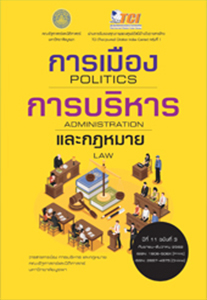ยุทธศาสตร์การดำรงชีพของชาวประมงพื้นบ้าน ภายใต้โครงการพัฒนาบริเวณชายฝั่งทะเลตะวันออก: กรณีศึกษา จังหวัดระยอง
บทคัดย่อ
การวิจัยครั้งนี้มีวัตถุประสงค์เพื่อ 1) ศึกษาสภาพการดำรงชีพของชาวประมงพื้นบ้าน 2) วิเคราะห์ปัจจัยที่ก่อให้เกิดผลกระทบต่อการดำรงชีพ และ 3) เสนอยุทธศาสตร์การดำรงชีพของชาวประมงพื้นบ้านภายใต้โครงการพัฒนาบริเวณชายฝั่งทะเลตะวันออก กรณีศึกษาจังหวัดระยอง โดยเป็นการวิจัยแบบผสมผสาน ที่เก็บข้อมูลด้วยแบบสอบถามจากกลุ่มตัวอย่างจำนวน 320 ราย และแบบสัมภาษณ์กึ่งโครงสร้างจากผู้ให้ข้อมูลสำคัญ จำนวน 10 ราย ลักษณะข้อมูลของประชากรกลุ่มตัวอย่าง ชาวประมงพื้นบ้านในเขตพื้นที่จังหวัดระยอง ส่วนใหญ่เป็นเพศชาย คิดเป็นร้อยละ 72.2 โดยมีอายุเฉลี่ยระหว่าง 41-50 ปี คิดเป็นร้อยละ 29.1 และมีสถานสภาพสมรส คิดเป็นร้อยละ 72.5 ส่วนในเรื่องของการศึกษานั้น ส่วนใหญ่ได้รับการศึกษาในระดับประถมศึกษา คิดเป็นร้อยละ 63.4 และอาศัยอยู่ร่วมกันครัวเรือนละ 4 – 5 คน คิดเป็นร้อยละ 44.1 พบว่า ชาวประมงพื้นบ้านได้รับการสืบทอดอาชีพจากบรรพรุษมา 1 – 2 รุ่น คิดเป็นร้อยละ 46.3 และมีรายได้หลังหักค่าใช้จ่ายอยู่ระหว่าง 50,001 – 100,000 บาท ในระยะเวลา 1 ปี การทำประมงพื้นบ้านต้องอาศัย “ทุน” ในการดำรงชีพ ผลการศึกษาพบว่า ทุนที่ส่งผลในเชิงบวก คือ ทุนมนุษย์ ได้แก่ ทักษะการอ่านสัญญาณธรรมชาติ การประดิษฐ์เครื่องมือ สุขภาพที่แข็งแรง ทุนสังคม ได้แก่ การรวมกลุ่มที่เข้มแข็ง ทุนการเงิน ได้แก่ อาหารทะเลราคาสูง ทุนสถาบัน ได้แก่ ความช่วยเหลือจากหน่วยงานของภาครัฐและภาคอุตสาหกรรม ส่วนทุนที่ส่งผลกระทบในเชิงลบ คือ ทุนมนุษย์ ได้แก่ การขาดความตระหนักเรื่องสุขภาพ การขาดความภูมิใจในอาชีพของตนเอง ทุนการเงิน ได้แก่ การไม่สามารถคาดการณ์รายรับได้ ทุนกายภาพ ได้แก่ การมีพื้นที่สำหรับทำการประมงอย่างจำกัด เครื่องมือถูกทำลายจากปัจจัยภายนอก ทุนสังคม ได้แก่ ชาวประมงทำร้ายกันเอง เกิดการแย่งชิงทรัพยากร และทุนธรรมชาติ ได้แก่ สภาพอากาศที่ไม่แน่นอน ภัยธรรมชาติ สัตว์น้ำน้อยลง ซึ่งจะเห็นได้ว่า ทุนมนุษย์ ทุนสังคม และทุนการเงิน เป็นทุนที่ให้ทั้งคุณและโทษขึ้นอยู่กับบริบทแวดล้อมในเรื่องของนโยบาย เศรษฐกิจ ค่านิยมของสังคม ฯลฯ เช่นเดียวกับ ทุนธรรมชาติ จากผลการวิจัย ผู้วิจัยเสนอ 3 ยุทธศาสตร์ คือ ยุทธศาสตร์ที่ 1 ขับเคลื่อนการดำรงชีพของชาวประมงพื้นบ้านให้เป็นมิตรกับสิ่งแวดล้อมและทันต่อการเปลี่ยนแปลง ยุทธศาสตร์ที่ 2 พัฒนาระบบบริหารจัดการทรัพยากรทางทะเลอย่างมีธรรมาภิบาลและมีประสิทธิภาพ และยุทธศาสตร์ที่ 3 ส่งเสริมการคุ้มครองและฟื้นฟูทรัพยากรธรรมชาติทางทะเลอย่างยั่งยืน






